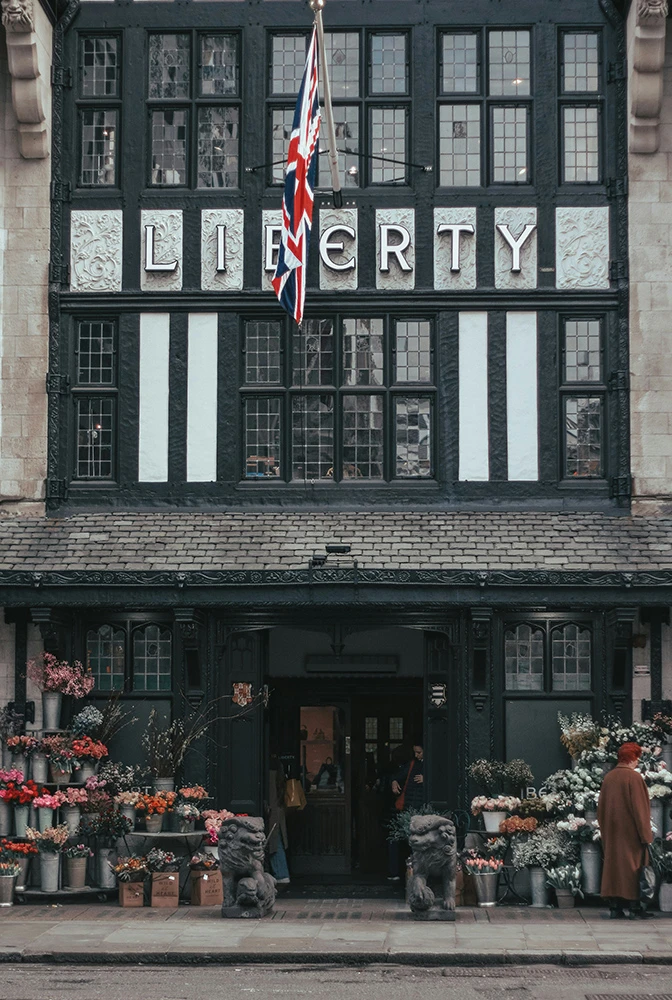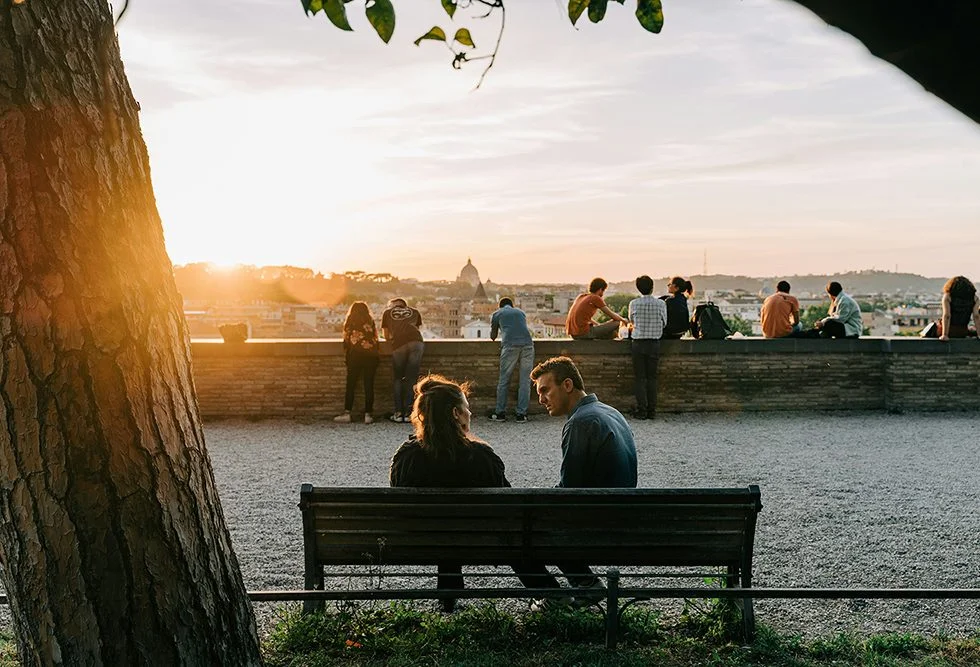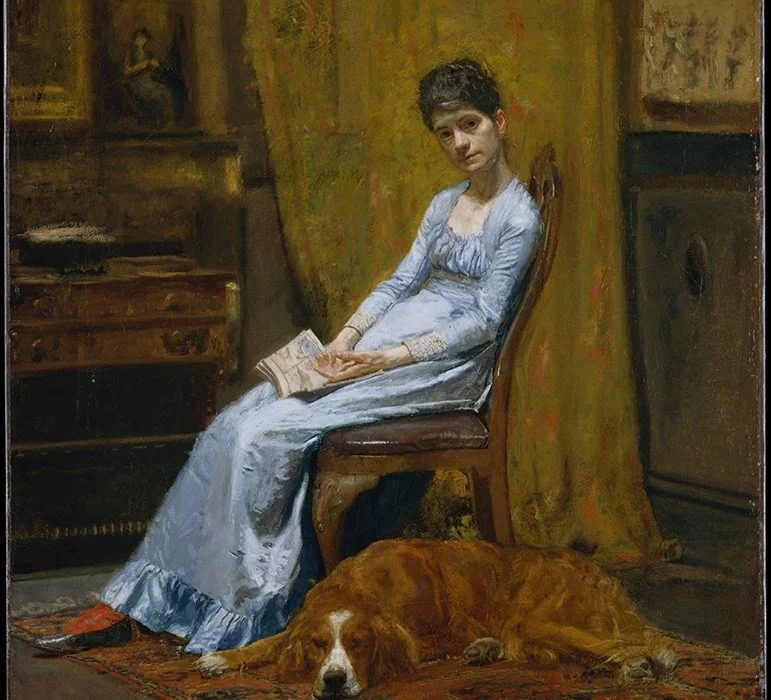Relationships • Finding Love
The Courage to Love Again
It’s odd, surely, to use the word ‘courage’ – the thing you need in air raid shelters and cancer wards – in relation to an activity which, in the early balmy days, consists mainly of such outwardly innocuous occurrences as two people meeting up after work to cook dinner in one of their flats, cuddles on the green sofa, brunch on Saturday mornings, hand-holding on canal walks and tender and playful messages that end in ‘xxxx’.
But to anyone who has suffered loss, finding the courage to love again is never going to be simple. We may be pleased, of course, that it’s happened. That we matched. That we’ve gone to Liberty’s to buy fabrics together (an innovative second date), that we had a first kiss on the corner of Regent Street and Great Marlborough Street. That they texted us from the Elizabeth line to say they’d love to see us again on Friday. That we can feel how keen they are and know that there could be a real chance here. All of it is rare and thrilling and a delight. All of it is worthy of celebration. In normal circumstances, we would be telling everyone; in normal circumstances, the joy would be unalloyed.

The Ghost of Relationships Past
But these aren’t remotely normal circumstances – and we aren’t remotely normal people. We belong to a distinct category: those who loved and were left. Those who trusted and were betrayed. Those who have spent the previous year in agony. Those who know the contours of hell.
We ache for love like everyone else, but we also have detailed knowledge of how it can go. The beginning of every love story unwittingly evokes the start of the last one; we haven’t felt so close to the doomed relationship and its hopeful beginnings in a while. How we matched one Saturday evening, how very quickly we agreed to dinner, how easy it felt in Victoria Park, how shy and yet bold they were in the study, the time they cried tears of joy at having met us and begged us never to abandon them…
And yet we know how it ended, four and a half years later: with the parting on the last day of December, with the absurd half-hearted messages, with deceitfulness and humiliation, with online disappearances and the betrayal at the party in Southwark.
The Unknowability of Others
We know, too, how despite every wise bit of psychological advice, there simply was no easy way of foretelling the catastrophe. We still can’t quite draw a line between the start – the holiday in Corfu, the visit to their parents, the pizza in Dalston – and what came later. We have had a lot of therapy, we’ve read books, we’ve talked to wise friends – and still we can’t, at heart, understand quite why. Why the curdling, why the change of mind, why the need to lie? We have some cobbled-together theories – their fears of intimacy and traumas around kindness, the role of their mother, the father’s violence, the sister’s competitiveness – but to be honest, in our hearts, in the middle of the night, it still doesn’t make sense. They said they would be around forever, to the very end of old age; they held our hand in theirs, and we believed them. Someone came into our lonely lives, smiled a lot, told us it would be forever, gave us an utterly convincing sense of their devotion and seriousness – and then left.
From this has come a moral: that we can never, ever be totally safe. That we can never know what lies behind a promise. That we can’t tell who we have in our arms.
The gurus teach us that we can outwit the dangers by looking out for certain signs; they provide us with checklists of risks. But there aren’t any foolproof methods, any more than a regimen of push-ups and kale will ever allow us to cheat death. Everyone is disturbed, everyone has a troubled past. There are reasons in every backstory why someone might hurt us.
Someone can say ‘I love you’ with seemingly thorough sincerity, they can cry on our chest and swear loyalty, they can make up tender nicknames, they can remember our favourite cake – and still, a day or a year or two down the line, drift away and crush us. We have to let go of the safety rail and let ourselves fall without any guarantees.
Finding the Courage to Love Again
Which is why, with the best will, what’s happening now is difficult. Naturally, we’re not taking it in any way for granted that this sweet person has brought over a washbag because they want to stay over at our place more often or gifted us a little jam jar with two tomatoes that they grew in their window box for us. It’s entirely sweet – and at the same time, very, very worrying.
We’re also – let’s face it – alone with the worry. There’s only so much that even the nicest, most empathetic new partner can take of the panic that they provoke in us. It isn’t really possible to say, in effect, ‘Be sympathetic for how scared I am by you; be tender towards how much I worry whether or not I can trust you. Be kind about how much you frighten me.’
Along the way, acceptance by the new partner makes rejection by the old one seem even more illogical – and therefore painful. If this person can love us properly, why couldn’t the previous one? If we are more than acceptable to the current partner, why wouldn’t we have been so to the prior one? It makes the end seem like a mistake all over again.
Finally, what if this really were to be our person? If this succeeded, we wouldn’t need to be sad about our ex any more. We’d finally get over them – and that would have a charge of melancholy of its own. Happiness would mean having to say a final goodbye.
They mint medals for all sorts of feats. In a better world, there would be one – not huge, not the brightest – for those who have, despite everything, returned to relationships, ploughed forward, picked themselves up, not written too many begging letters (or only a few) – and had the courage to love again.


























